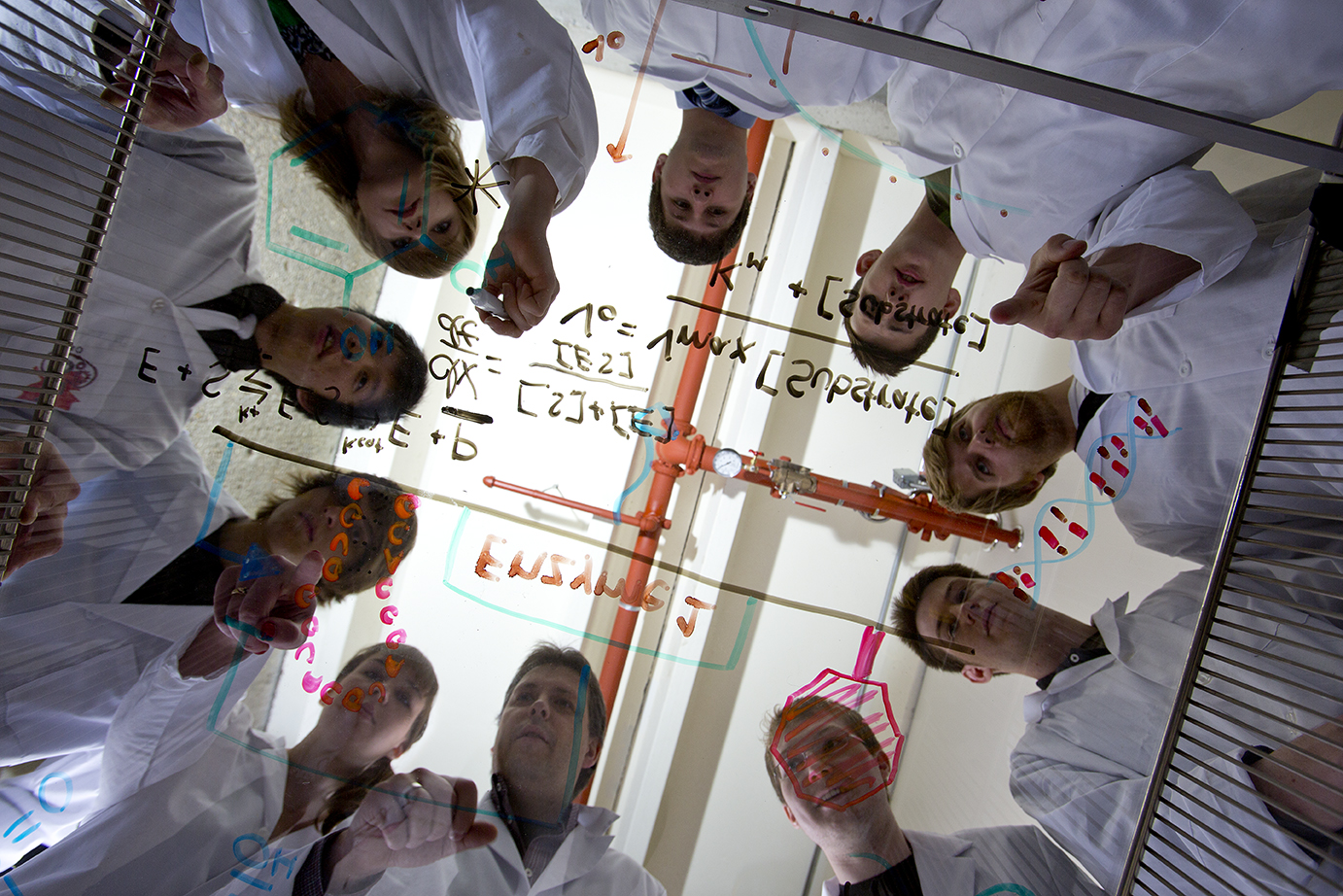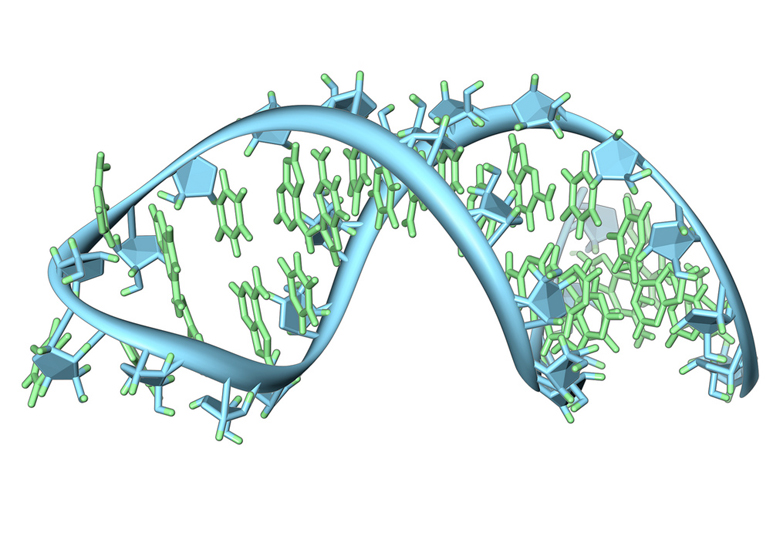Wednesday, Aug. 1 marks the first ever annual RNA Day, a celebration of the vital biological molecule, ribonucleic acid. RNA is a close relative of the commonly known molecule, DNA (deoxyribonucleic acid), and they, along with protein, are the three major biological molecules required for life.
Students at the Alberta RNA Research and Training Institute (ARRTI) at the University of Lethbridge heard the call for an RNA Day celebration and they stepped up to host several activities in the community. They will be at the Downtown Lethbridge Farmers Market on Wednesday, Aug. 1 from 10 a.m. to 3 p.m., with fun kids’ activities, such as colouring and word searches, and the chance to talk to an RNA scientist.

"I hope RNA Day shows the public more about research and how members of the scientific community are using RNA to try and better the lives of people, in a wide range of applications from medicine to agriculture," says Sydnee Calhoun, a fourth-year undergraduate studying biochemistry. "Since this is the first RNA Day, I hope we continue to build on this event for many years to come."
"I feel as though RNA Day is a great stepping stone towards making RNA knowledge mainstream,” says Jessica Semmelrock, another fourth-year biochemistry student. “I'm looking forward to the circulation of this knowledge, which I hope will bring the general public closer to the exciting research that is going on around them."
In addition to this free public outreach activity, ARRTI will also be hosting a livestream of a scientific lecture. The RNA Society and the organizers of the Ribosome Synthesis Conference have arranged for the keynote lecture by Dr. Ed Hurt (University of Heidelberg) to be shared live with the international RNA community. The talk is titled “Insights into the mechanism of eukaryotic ribosome biogenesis” and will be viewable at 6 p.m. on Wednesday, Aug. 1, in room C640 of University Hall.
“RNA will play a critical role in the new age of biotechnology — the rational design and engineering of biomolecular-based systems and molecular machines,” says Dr. Hans-Joachim Wieden, the founding director of ARRTI. “The role of RNA in new and upcoming disruptive technology has been foreshadowed by the recent commercial successes of the CRISPR gene-editing platform and the emergence of RNA-based therapeutics and pesticides.”

At the U of L, RNA research is flourishing within the ARRTI, with eight research groups and more than 100 trainees working on problems related to cancer, antibiotics, viral infections and agriculture.
“Many of the most-deadly viruses in the world have an RNA genome,” explains Tyler Mrozowich, a master’s student in the lab of Dr. Trushar Patel. “The study of this exceptional molecule will help us understand these viruses, and ultimately, help us combat the diseases they cause.”
“For me, the greatest outcome of RNA research is the development of RNA therapeutics,” says Chris Lindgren, another master’s student in the Patel lab. “To see someone’s face when they learn that they have been cured of a disease would make all the long days in the lab and the sleepless nights worthwhile.”
The significance of RNA research for the future of Canadians was recently endorsed by a $1.65-million training grant, jointly held by the U of L and the Université de Sherbrooke. The grant will allow these leading RNA-research institutions to develop the RNA Bioengineering and Innovation Network Collaborative Research and Training Experience (CREATE) to train job-ready leaders and innovators in the field of biotechnology.
